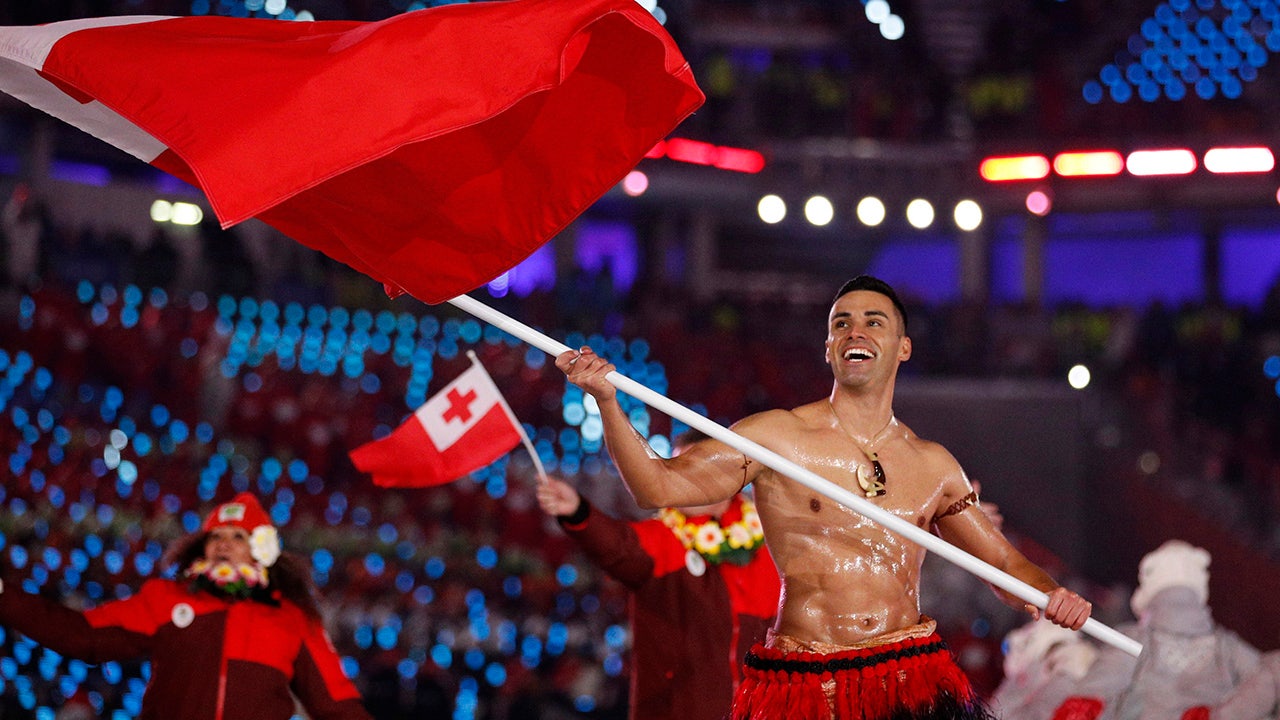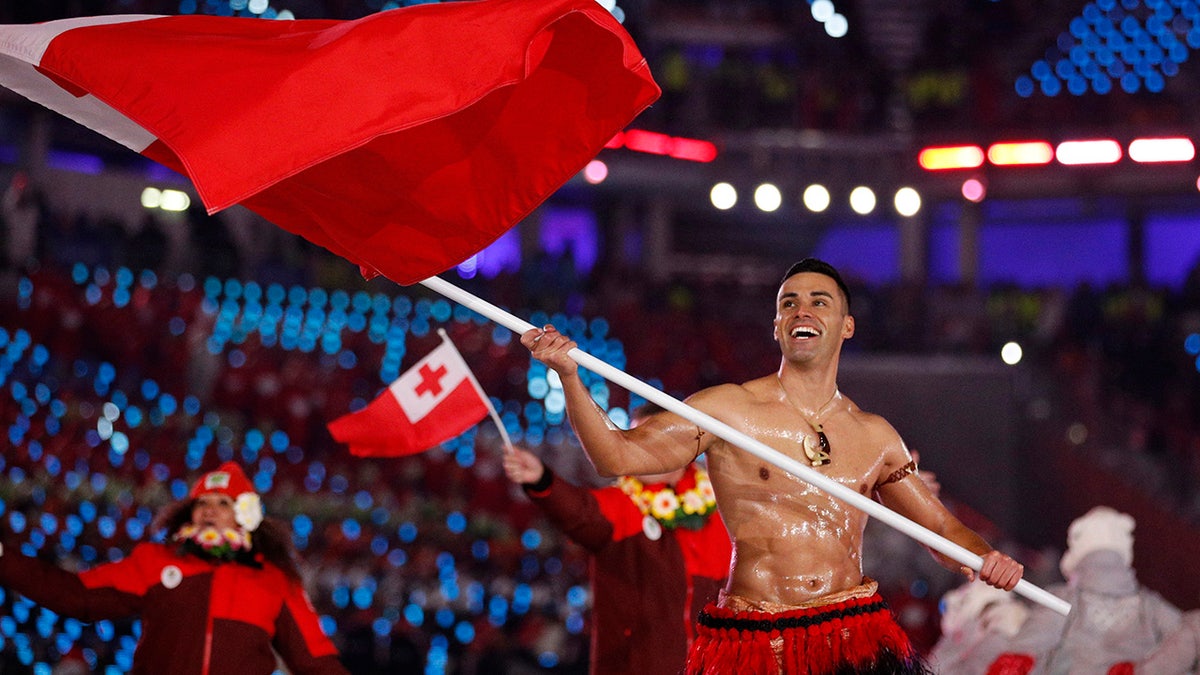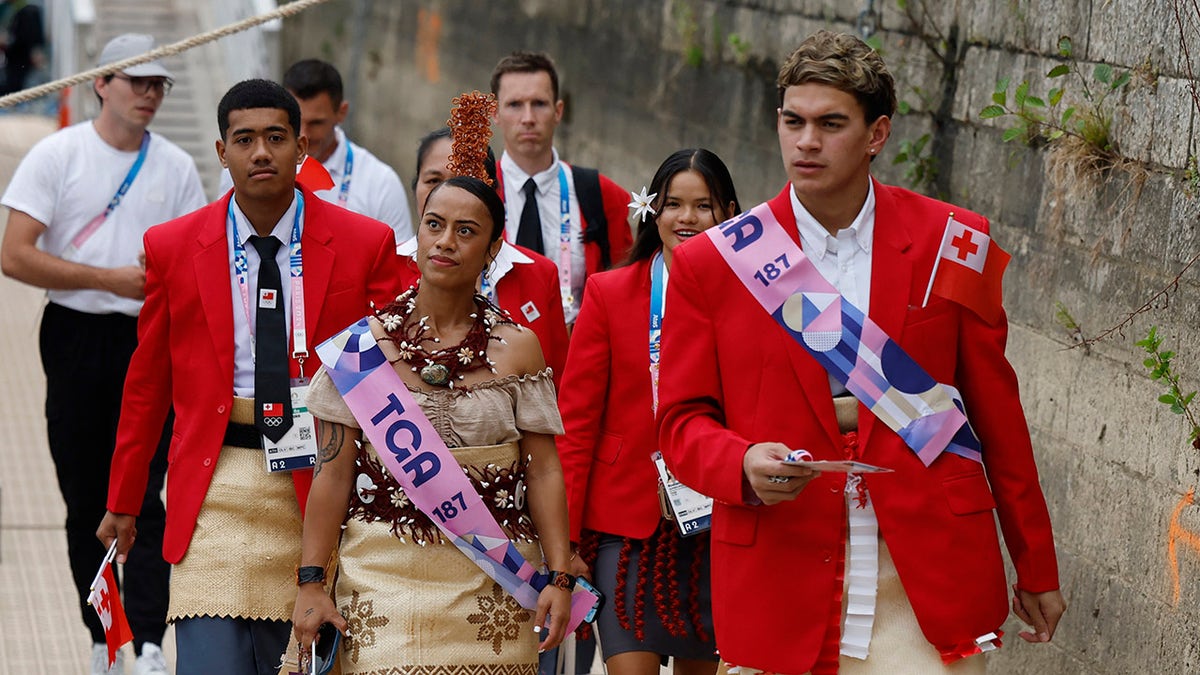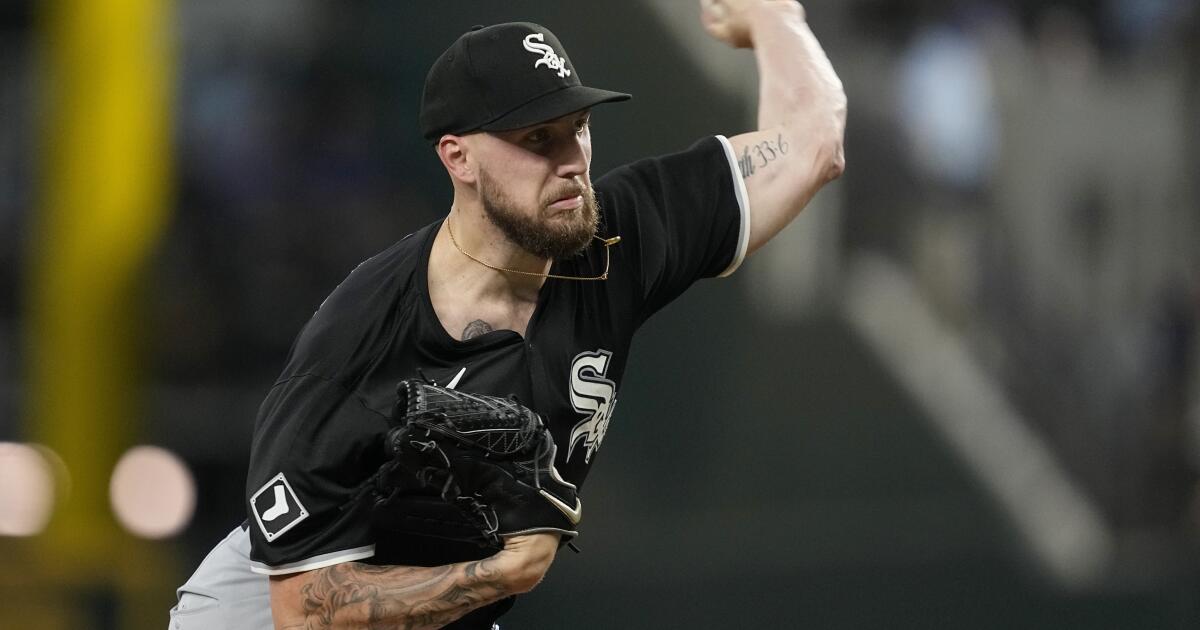Sports
Feeding the ‘demon inside’: Ex-employee tells how and why he stole $22 million from Jaguars

Feb. 2, 2023 began like any other morning for Amit Patel. He was sitting in his cubicle on the ground floor of EverBank Stadium, home to the Jacksonville Jaguars. Patel, a manager in the team’s financial department, was closing out the last cycle of expenses, as he did at the beginning of each month.
When Jaguars chief financial officer Mark Sirota asked Patel to come to Sirota’s office, he thought it might be to discuss a new project. But then Patel got there and Sirota lowered his voice and asked Patel to shut the door behind him. Sirota then told Patel a delegation from NFL security was in a suite upstairs waiting to talk to him.
Sirota escorted Patel through the office, then the bowels of the stadium. As they made their way to an elevator, Patel looked back and saw a contingent of human relations officials and team security trailing them. When he arrived on the fourth floor and stepped into a suite, he was met by one of the team’s lawyers and three men in suits, one of whom was sitting behind a laptop.
“I already knew they had everything on the computer in front of them. My entire gambling history,” Patel, 31, told The Athletic in an interview from his attorney’s office in Jacksonville last week.
When the NFL security team asked where Patel got the money to place the bets they had discovered, he lied. He said it was from family wealth and cryptocurrency. When they asked whether they could have access to his phone and computer, he looked to the Jaguars’ lawyer for advice, only to realize the lawyer was there to protect the team, not him. He handed his devices over and the lawyer took him for a walk around the concourse. As they walked, Patel feverishly calculated what those security officials might identify as they transferred data from his computer and phone.
When his boss later asked him for his password to the company’s virtual credit card program, Patel knew it was over. He was caught.
FBI investigators subsequently discovered that Patel, over a four-year period, had embezzled more than $22 million from the Jaguars by creating fraudulent charges on the club’s virtual credit card and then covering his tracks by sending falsified files to the team’s accounting department. Patel’s attorney said the vast majority of what he stole he gambled away via online sports gambling sites. The government said he also used the money to fund a jet-set lifestyle and to purchase vehicles, a condominium, a designer watch worth over $95,000 and other extravagances.
Last Tuesday, in U.S. District Court in Jacksonville, Patel stood before a judge, voice quivering, and said he was “ashamed” of his actions. The prosecution asked for a sentence of 84 months, emphasizing the scale of his fraud, the media attention the case received and the message it would send to others who might “steal millions and live like a king.” Patel’s attorney asked for probation, citing his client’s gambling addiction and subsequent recovery efforts as reasons for leniency.
Patel received a 78-month sentence.
In his first interview since he pleaded guilty last year, Patel said that after months of anticipation, dread and unease, he feels a sense of relief to finally face his punishment.
“I’m dealing with the consequences of something that happened a year and a half ago. I’ve been a completely different person since then through my recovery,” Patel said. “I’m dealing with something that’s happened in the past when I was a different person.”
Patel had roughly two dozen friends and family on hand at his sentencing, some of whom made statements vouching for his character. His older brother said he was the prototypical golden child who excelled at sports and school only to be derailed by alcohol abuse and gambling addiction. His high school teacher said he was a “model student.” His girlfriend insisted he was a good person who had taken responsibility for his actions and committed to a life of sobriety.
Government attorneys described him as a fabulist who conned his company and enjoyed the spoils. Court filings included pictures of Patel partying at swanky hotels, flying on private planes and flashing expensive bottles of champagne. In that filing, the prosecutor handling the case wrote that Patel continued to “enjoy the finer things” even after he was fired. Megha Parekh, the Jaguars chief legal counsel, issued a blistering assessment of Patel, stating that his actions invited an inordinate amount of scrutiny on the organization and diverted key resources and time from current employees: “He was our teammate and he betrayed us.”
Those depictions, while seemingly in contrast, coexist in Patel’s retelling, and he frequently toed the line between expressing remorse for his actions and ascribing those actions to a problem outside his control.
“I was battling with a secret addiction that nobody knew about,” Patel said. “Everyone thought I was doing great, dandy. You know, on Instagram they see you having fun, you’re with your friends and family, but there’s a mental demon inside.”
Patel grew up in a strict household where his parents, who immigrated from India, expected academic excellence from their two sons. He said he was impacted greatly by two losses earlier in his life: Patel’s father died of a heart attack when Patel was 13, and one of his best friends died in a car accident nine years later when he was in college. By that time, Patel said his drinking, drug use and gambling were all-consuming.
But Patel also had an abundance of love and support coupled with ambition and opportunity. He was, as the government attorney described in court, an example of the American Dream. Popular and well-liked among his classmates. Elected class president at the Paxon School for Advanced Studies in Jacksonville. Captain of his high school lacrosse team. And he had an entrepreneurial spirit, dabbling in e-commerce and side projects that suffused him with cash and freedom.
Like many people his age, Patel was drawn to gambling during the online poker boom of the early aughts and the ubiquity of fantasy sports. He said he first experienced the rush of gambling on a cruise trip to the Bahamas the summer before he left for college. The cruise featured a poker tournament and, though his mom forbade him to enter because he had previously squandered money on online poker by using her credit card, his stepfather slipped him a $100 bill.
A crowd formed around the poker table and he was in the middle of it all, winning the tournament and a $2,000 prize. He paid his mother back for a portion of the cruise and bought his then-girlfriend a necklace. He later posed for a picture with the money splayed out on a table and made that his Facebook profile avatar.
Patel enrolled at Florida State in 2010 but said the combination of partying and gambling led him to switch from his major of choice (engineering) to something more manageable (accounting). Poor grades prompted his transfer to Flagler College as he prioritized gambling over all else. He took a bus to an in-person poker tournament at the Seminole Hard Rock Hotel in Hollywood, Florida, where he finished 15th out of about 1,500 entrants, winning almost $7,500. But he was able to return to FSU for an MBA. Out of college, he went to work for Deloitte, and while there he used his corporate credit card to fund his gambling habit. But he avoided trouble because his brother helped him pay it off.
In 2018, he landed his dream job with the Jaguars, a team he grew up supporting. By that point, he’d progressed from playing fantasy football to betting on baseball via offshore accounts to placing wagers on essentially anything he could. “You wake up in the middle of the night and you’re betting on Turkish women’s volleyball,” he said.
He’d ignore his mom’s calls, forget to brush his teeth, stay up late into the night, constantly refreshing his phone for scores and highlights while his girlfriend slept next to him. Once, in Las Vegas, he drove to the Nevada/Arizona border just so he could place a daily fantasy sports bet, which isn’t permitted in Nevada. When his bank account was low, he’d sell personal items, donate plasma, take out payday loans or rustle up work doing cell phone repairs. There were times he’d visit the ATM multiple times in a day, depositing and depleting.
“The worst part is there’s always a win around the corner,” Patel said. “And so that’s what you’re always chasing.”
In September 2019, Patel, then a mid-level employee with the Jaguars, was in the hole from gambling losses, his credit card maxed out. He was drunk, trying to think of a way to dig himself out of debt and feeling the “itch.” That’s when he allowed himself to consider using funds from the company VCC program he managed.
“I mean, the devil inside me is like let me just deposit $25,000 from the card. I’ll turn it into $50,000. I’ll put the $25,000 back,” Patel said.
Given the level of attrition and lack of oversight within the Jaguars’ depleted accounting and finance department, the prospect of getting caught seemed low. In corporate finance, there is a concept called the fraud triangle: Opportunity. Incentive. Rationalization. Patel had all three.
The hole deepened as Patel’s gambling losses mounted. And so he continued using funds obtained from the Jaguars VCC program to place astronomical bets via FanDuel and DraftKings in hopes that he’d win big and save himself. Patel said his VIP rep at FanDuel would add 10 percent to his account for every $600,000 he spent, in addition to entry fees that were refunded and travel perks he was comped. A spokesperson for FanDuel declined to comment as the company still considers the situation an “ongoing matter.”
In the early days of the scheme, Patel would see an unannounced meeting placed on his calendar and believe the team had figured out his subterfuge. As the years passed and his actions went undetected, that fear never abated, he said, but he just couldn’t stop.
He’s not sure what tipped off NFL security early in 2023. (Employees of NFL teams are forbidden from betting on games.) But he recounted some brazen moves he made in the months before his termination. Twice, he bet on the Jaguars – once while he was in Kansas City for a game against the Chiefs — an $18,000 six-way parlay involving five UFC fights and the Jags covering the spread. (The five fights went his way, he said, but the Jags didn’t cover.) Later, he said he bet “a few hundred thousand dollars” on a Jaguars-Titans game, another loss. He also tried to withdraw money from a wire to place bets through FanDuel, which triggered a notification from the anti-money laundering team at the site. (He said his account was suspended after he unsuccessfully answered questions about the source of his funds.)
“I was so far in the hole I was like ‘Maybe I can win a million really quick on this game and pay them back,’” he said. “I was desperate.”
In the immediate aftermath of getting fired by the Jaguars, Patel did not stop gambling. Instead, he continued scrambling to try to win and pay the team back. An absurd idea, he recognizes now, considering the sum he owed.
Patel was in rehab by the time the FBI got involved. His attorney referred him for alcohol and drug abuse, as well as gambling addiction. He cooperated with the government’s investigation and in December 2023 pleaded guilty to charges of fraud and an illegal monetary transaction.
In the 99 days he spent in rehab, Patel said he felt guilt and shame for the pain he caused his loved ones, friends and coworkers. But he also felt grateful. “I was so glad to be out of that torturous, endless cycle in my head,” he said.
Gambler’s Anonymous works similarly to Alcoholics Anonymous. You work the 12 steps. Identify the “character defects” that contribute to addiction. Patel still battles those, with perfectionism and ego surfacing more prevalently than he would like.
He bristled at the suggestion that he was a neophyte and historically bad gambler, as one report suggested. He was bothered by news accounts that only one person attended his plea hearing in his defense. (He told friends and family not to attend, he said.) And he pushes back on the government’s assertion that he was driven solely by greed.
He contends that he bought some luxury items to flip for profits to subsidize his gambling, while also acknowledging that he was frittering away money on a country club membership, spa services and more. Though the majority of the money he stole from the Jaguars ended up with FanDuel or DraftKings, the government contends that Patel transferred over $5 million to his PayPal and other financial accounts.
He admits he enjoyed the trappings that came with having access to millions of dollars but said the cost of certain trips and events were reimbursed by the online betting sites, an incentive for him to continue spending with them: “They just give you this illusion that you’re winning because they’re just making so much money off of you that they need to keep you happy and keep you gambling,” he said.
Patel said he still has urges to gamble — the most recent one came a few months ago when he got an email from the Hard Rock Hotel Casino group, commemorating the opening of its new sportsbook. Patel talked about it in the GA meeting he organized; the group now meets regularly in a local church.
“Not everyone will get addicted to gambling,” Patel said. “But everyone can get addicted.”
Patel will continue treatment while incarcerated. He is slated to begin his sentence within the next 90 days. His attorney requested he be placed at the federal facility closest to his family in Jacksonville. When he gets out, he’ll be put on a payment plan – $250 a month directed to the Jaguars. Both the prosecuting attorney and the judge acknowledged he is unlikely to ever pay back the entire sum he stole from the NFL franchise.
Said Patel: “I’ve just got to deal with these consequences and move on with my life and see how much I can use this to help a lot of other people.”
(Illustration: Eamonn Dalton / The Athletic; photos: Don Juan Moore, Julio Aguilar, Perry Knotts, Don Juan Moore / Getty Images; courtesy of U.S. Attorney)

Sports
Can Paris as Olympic host renew enthusiasm for the Games?

Follow our Olympics coverage from the Paris Games.
The Olympic Games have had a rough decade.
For so many people over the past 10 years, those five multicolored rings that were long synonymous with the pinnacle of sport came to symbolize billions in wasteful spending, similar excesses of political and moral dissonance and a dismantling of the idea of the Games as pure competitions played for spirit and country.
Every cycle, the Games stumbled through another series of problems: Russia’s annexing of Crimea and its use of a systemic doping program during the Sochi Games in 2014; the threat of the Zika virus and unparalleled disorganization in Rio de Janeiro in 2016; the threat of nuclear war in South Korea in 2018; the depressing images of empty stadiums because of the coronavirus pandemic in Tokyo in 2021 and Beijing in 2022.
Empty stands due to the COVID-19 pandemic took the shine off the Tokyo Games, which were also delayed one year. (Tim Clayton / Corbis via Getty Images)
At those same Beijing Games, organizers and the International Olympic Committee were frequently asked about free speech and the treatment of ethnic minority groups like the Uyghurs, a situation the United Nations later described as crimes against humanity, easily flying in the face of the stated values of the Olympics.
With each dent, television audiences in the United States have turned away in significant numbers, threatening one of the largest single sources of Olympic revenue.
Now comes Paris. One of the world’s leading tourist destinations, a city that conjures levels of fascination and romanticism that few if any can top, will take on the task of restoring to the Olympic Games that mythical quality that for so long allowed it to exist as something so much more than sport.
That quality might have always been more myth than truth. Crass commercialism helped transform the Olympics into a multibillion-dollar behemoth from the quaint sports festival seen when Paris last hosted 100 years ago. Still, Paris has promised to bring back the luster.
“I have been an athlete, and I love the pressure,” Tony Estanguet, a three-time gold medalist in canoe and the president of the Paris 2024 Organizing Committee, said during a visit to New York last fall. “How can we move the line and be more creative and more innovative? The success of the Games relies on this ability to evolve and to make the brand, this event, more attractive. It’s a permanent fight.”
The IOC, the roughly 100-member organization based in Switzerland that owns the trademark to the famous rings and awards the Games to cities that compete to hoist them, has been losing that fight lately for several reasons. One has been a lack of geographic diversity, with the previous three Olympics in East Asia.

GO DEEPER
How NBC is broadcasting the most unique opening ceremony in Olympic history
To change that, the IOC in recent years altered its bidding rules to take a more active role in targeting cities rather than simply selecting from whichever candidates offer themselves up. After Paris, the Olympics will head to northern Italy; Los Angeles; the French Alps; Brisbane, Australia; and Salt Lake City. Organizers hope that will help revive lagging interest in Western Europe and the Americas.
“No question in my mind, moving the Games to such an iconic European city like Paris, plus having fans and partners back in person, will be such a needed and welcomed lift,” said Michael Lynch, a leading international sports consultant and the former director of sports marketing for Visa, one of the main sponsors of the Olympics.
For their part, the French have taken up the fight in the most French way: by showing off their beautiful capital. Estanguet and his team decided years ago when they first bid for these Games to marry sports and culture as never before by placing the Games at some of the most famous and recognizable locations in and around the French capital.
The move is a stark turn away from the plan most cities have followed when they have hosted recent Olympics. That playbook generally involved finding a massive, undeveloped or long-since abandoned tract and building a huge park filled with sports facilities, usually somewhere outside the center of the city, and putting a big fence around it.
Paris did a bit of that with its Olympic Village, where athletes will live, in St. Denis, north of the city center and not far from the Stade de France, where track and field will take place. The aquatics center — host to diving, water polo and artistic swimming — is near there, too.
Just about everything else is stuffed into or just beyond the peripheral road that encircles the main area of Paris, which can be traversed on foot with a comfortable pair of shoes in an afternoon.
As the sun sets beyond the city Friday evening, the opening ceremony will unfold along the Seine, with some 10,000 athletes floating down the river on boats rather than marching into an enclosed, remote stadium. Beach volleyball will take place at the Eiffel Tower. Fencing will take place at the Grand Palais. Breaking, skateboarding and 3×3 basketball will happen near Place de la Concorde. The equestrian competition will happen at Versailles.

Beach volleyball in the shadow of the Eiffel Tower figures to be one of the visual spectacles of the Paris Olympics. (Tim Clayton / Corbis via Getty Images)
In addition to creating a two-week commercial for Paris, organizers want to reimagine what the Olympics can be by bringing them closer to population centers rather than siphoning them away in a remote area. It’s especially poignant after Tokyo and Beijing, two consecutive versions of the Olympics that were siloed as never before, with COVID-19 prompting organizers to prohibit paid spectators.
The fallout was ugly, especially in the United States, where the size of the television audience dwindled for NBC, whose media rights fee accounts for about 50 percent of Olympic television revenue. Coverage from Beijing in 2022 dropped 40 percent from South Korea in 2018, which was down from Sochi in 2014. Coverage from Tokyo in 2021 was down 42 percent from Rio in 2016.
Michael Payne, the former director of marketing for the IOC, said audiences have grown elsewhere, especially for the host countries in Asia, but after a few “challenging Games,” in his words, Paris brings the chance for a “reboot.”
“Would be good to get back to normal,” Payne said with Olympian understatement.
There is no guarantee for that. However wondrous and new Friday’s opening ceremony might appear, clouds are hanging over the Games, as there always are in this era.
Russia, long one of the most important countries in the Olympic movement, remains a pariah nation because of its history of state-sponsored doping and its invasion of Ukraine. Athletes from Russia and Belarus will compete as part of a neutral group of athletes with no national affiliation.
Israel’s war in Gaza, a significant response to deadly attacks by Hamas last October, has sparked calls for athletes from Israel to be banned and generated demonstrations at Israel’s first men’s soccer game Wednesday.
The threat of a terrorist attack looms, especially when so many events will take place in the center of Paris.
The worldwide anti-doping system, which relies on independent national organizations to test their athletes, has broken down. COVID-19 rates are rising. With people from all over the world converging on Paris, the city might become the ultimate petri dish, especially the Olympic Village, where the athletes will live and eat and socialize for the next 17 days.
David Wallechinsky, a leading Olympic historian, said he walked 10 miles through Paris this week searching for a pre-Games buzz. He couldn’t find it. Still, he knows everything changes once the competitions begin, the stadiums fill and the host country wins its first gold medal.
Wallechinsky also knows one thing for certain.
“It’ll look good,” he said of the Paris Games.
Estanguet wants more than that. He knows the world will be watching.
“The pressure is positive to me,” he said. “We have to succeed.”

Equestrian events will take place in front of the Palace of Versailles, one of the many marriages of sport and iconic venue at the Games. (Pierre-Philippe Marcou / AFP via Getty Images)
(Illustration: Dan Goldfarb / The Athletic; photo of the Eiffel Tower: Maja Hitij / Getty Images)
Sports
Tonga Olympic flag bearer Pita Taufatofua abandons shirtless look for Paris opening ceremony

Olympics fans hoping to see Tonga national heartthrob Pita Taufatofua in his signature opening ceremony uniform – or lack thereof – were disappointed on Friday when the country’s viral flag bearer was sporting a more dressed up look.
Taufatofua, who has competed in both the Summer and Winter Olympics, became a fan favorite for his shirtless, oiled-up look in past Games.
Malia Paseka and Pita Taufatofua, of Tonga, carry their country’s flag during the opening ceremony in the Olympic Stadium at the 2020 Summer Olympics, Friday, July 23, 2021, in Tokyo, Japan. (Hannah McKay/Pool Photo via AP)
But rainy weather seemed to cause Taufatofua to button up for this Olympics’ opening ceremony.
“I didn’t recognize him, he had his shirt on,” Hall of Fame quarterback Peyton Manning joked during NBC’s broadcast of the Parade of Nations. “Paris baby oil was stocked full this week.”
Taufatofua competed in Taekwondo in the 2020 Tokyo Olympics and the 2016 Rio Games. He also competed in cross country skiing in the 2018 Olympics in PyeongChang.
Despite qualifying for three Games, Taufatofua announced in April that he had failed to do so for Paris.

Peta Taufatofua carries a flag of Tonga during the opening ceremony of the 2018 Winter Olympics in Pyeongchang, South Korea, Friday, February 9, 2018. (AP Photo/Jae C. Hong, File)
OPENING CEREMONY NODS TO HEADLESS MARIE ANTOINETTE, MÉNAGE À TROIS RECEIVE MIXED REACTIONS
“This time my team and I fell short of competing at the Paris Olympics. I gave my absolute everything in both the Kayak and Taekwondo qualifiers but missed out on a qualification,” he said in a post on Instagram.
“I’m not kneeling in disappointment. In fact I couldn’t be happier. I’m kneeling to give thanks to God for delivering our team safely through another competition. Its easy to ask for things when you need something, but much harder to give thanks for things when they don’t go your way.
But earlier this week, Taufatofua announced that he would be headed to Paris after all as a flag bearer.

The delegation of Tonga arrives ahead of the floating parade at the start of the Opening Ceremony of the Olympic Games Paris 2024 on July 26, 2024, in Paris, France. (Clodagh Kilcoyne – Pool/Getty Images)
“Life is interesting. After missing out on the Olympic qualifiers, my goal was to focus on other areas of life. I had been defeated in battle with more scars added to the trophy cabinet, but I couldn’t have been happier.
“While not competing, the spirit of the Games called me, opportunities arose and I couldn’t say no. This time the medal I fight for is to be of service, to be there for my fellow athletes, an ear of support or a voice of encouragement. To share what I have learnt and, more importantly, to hear the stories of the other Olympians, these amazing human beings getting ready to represent their nations.”
Follow Fox News Digital’s sports coverage on X, and subscribe to the Fox News Sports Huddle newsletter.
Sports
How trade deadline dynamics have complicated the Dodgers' pursuit of Garrett Crochet

Garrett Crochet believes he can pitch through October.
“With the way my body’s been feeling and responding to the five-day routine,” the Chicago White Sox ace, and top trade deadline target, said at this month’s All-Star Game. “I think that anything’s possible.”
But whether he gets the chance, with the Dodgers or any other contending club, seemingly grows less likely by the day.
In theory, someone like Crochet should fit what is perhaps the Dodgers’ biggest deadline need.
The club wants an “impact” pitcher, as general manager Brandon Gomes described it this week. Crochet will probably be the best option available, a hard-throwing left-hander with a 3.07 ERA in 21 starts this year, more strikeouts (157) than any other pitcher in the American League and two seasons of team control left after this year.
Crochet does, however, have a looming workload problem; one that could diminish — if not eliminate — his chances of being dealt to a contender before Tuesday’s deadline.
In his first full season back from 2022 Tommy John surgery, Crochet has already doubled his career-high for innings, logging 111 this year after never previously surpassing 54. Because of that, Crochet’s workload might need to be limited the rest of the year, with the 25-year-old perhaps requiring a break before the playoffs or a late-season shift into the bullpen.
On Thursday, Crochet then threw a wrench into the process.
According to multiple reports, the left-hander would not only like to remain on a normal starter’s schedule for the rest of the year, but would also want a contract extension from any club that acquires him — reportedly a requirement before he agrees to pitch in October, or even considers some sort of late-season relief role.
The news added another complicated layer to what was already the Dodgers’ biggest trade deadline conundrum.
Even under the simplest of circumstances, lining up on a trade package for the pitcher was proving to be a challenge in itself.
And now, less than a week away from the deadline, the situation is underscoring the Dodgers’ difficulties in this year’s market — where there are no easy deals to address their biggest needs.
Even before Crochet’s desire for a contract extension, several factors were working against the Dodgers in their negotiations with the White Sox.
From Chicago’s point of view, Crochet is as valuable as any commodity on this year’s trade market — barring the Detroit Tigers making the surprise decision to deal Cy Young front-runner Tarik Skubal.
When the White Sox dealt another controllable ace, Dylan Cease, to the San Diego Padres earlier this year, they got four players back, including three of the Padres’ top 10 prospects, according to MLB Pipeline rankings, and one top-100 prospect in the sport overall.
Acquiring Crochet, who has an extra year of team control compared to Cease, figures to cost at least that much.
Crochet’s workload concerns, however, changed the calculation for a team like the Dodgers. If he were unable to serve as a postseason ace this year, it would diminish his short-term value to any contending club. But if he keeps pitching regularly and increases his workload too much, it could create concerns about long-term impacts in the future.
It’s why, while the White Sox would likely target the top of the Dodgers’ farm system — catcher Dalton Rushing and outfielder Josue De Paula would be the biggest potential prizes — the Dodgers would almost certainly be reluctant to part with so much.
De Paula is a 19-year-old high-A slugger ranked as one of MLB Pipeline’s top 100 overall prospects. With a 6-foot-3 frame and powerful left-handed swing, he has received comparisons to Houston Astros star Yordan Alvarez. And as one scout recently described it, his young age and sky-high potential make him, at this juncture, a virtually “untouchable” prospect.
Rushing, the team’s 2022 first-round pick, is a fellow top-100 prospect who is even closer to reaching the majors, as a 23-year-old slugger currently at the double-A level.
Some industry evaluators have wondered whether this deadline could be an optimal time for the Dodgers to move Rushing. After all, his pathway to the majors is blocked, with Will Smith signed to a 10-year extension behind the plate (and Shohei Ohtani locked in for the foreseeable future at DH). Rushing’s value around the sport is at a high point as well, thanks in part to his 25 home runs since the start of last year.
“Obviously, if he gets to the big leagues and crushes it, his stock will go up,” one rival scout said. “But he’s been so good with the bat as a pro that it’s hard to imagine it gets better.”
That means, for the Dodgers, this deadline has really become a question of “opportunity cost” — forcing them to weigh if there are any potential deals even worth considering for such highly touted prospects.
And while, on paper, Crochet might have been a fit, the realities of this year’s market have made most blockbuster moves appear like a long shot.
That’s not to say the Dodgers couldn’t look elsewhere for an impactful deadline splash.
The team has interest in another White Sox star, outfielder Luis Robert Jr. The best rental starter on the market, Jack Flaherty of the Detroit Tigers, is a pitcher they have pursued in the past.
There will be plenty of other names that could fit the Dodgers roster, too, from rental outfielders like Jesse Winker and Tommy Pham (who has expressed interest in joining the Dodgers before), to high-leverage relievers like Tanner Scott and Carlos Estévez (who could shore up the bullpen in lieu of starting pitching reinforcements), and even utility infielders with multiple years of control like Luis Rengifo and Nico Hoerner (who were linked to the team by AM 570 this week).
But, in all likelihood, the Dodgers will struggle to address their biggest need on the mound, with the difficulties surrounding their pursuit of Crochet underscoring the imperfect nature of this year’s deadline market.
-

 World1 week ago
World1 week agoOne dead after car crashes into restaurant in Paris
-

 Midwest1 week ago
Midwest1 week agoMichigan rep posts video response to Stephen Colbert's joke about his RNC speech: 'Touché'
-

 News1 week ago
News1 week agoVideo: Young Republicans on Why Their Party Isn’t Reaching Gen Z (And What They Can Do About It)
-

 Movie Reviews1 week ago
Movie Reviews1 week agoMovie Review: A new generation drives into the storm in rousing ‘Twisters’
-

 News1 week ago
News1 week agoIn Milwaukee, Black Voters Struggle to Find a Home With Either Party
-

 Politics1 week ago
Politics1 week agoFox News Politics: The Call is Coming from Inside the House
-

 News1 week ago
News1 week agoVideo: J.D. Vance Accepts Vice-Presidential Nomination
-

 World1 week ago
World1 week agoTrump to take RNC stage for first speech since assassination attempt



















